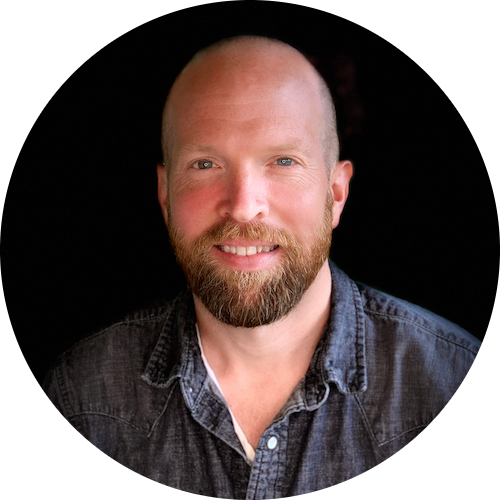In 2018, Jen Carrigan took a leap: she quit her job, dropped out of school, and enrolled at Code Fellows.
Today, Jen is a Code Fellows graduate working as a software development engineer at Seattle-based, fleet management technology company Zonar Systems. Her path to Code Fellows may not have been a straight line (and it may have involved a large amount of trial-and-error), but the journey mirrors the process of coding itself: you work as you go, you find new paths that take you where you need to be, and you trust in yourself and your abilities.
“Twenty percent of your job programming is innovation. The other 80 percent is solving the problems your innovation has caused,” says Jen. “A single idea can spawn several issues with that idea, and paths you didn’t see at first. You have to really be committed to what you create because there’s nobody else to fix it.”
Theory versus practice
Jen’s decision to enroll in Code Fellows wasn’t made on a whim (if anything, it was fate). She’d been working full-time as a web assistant, where she was using basic coding knowledge to do HTML. She liked the coding side enough that she decided to enroll in an online computer science program at Oregon State University.
“Twenty percent of your job programming is innovation. The other 80 percent is solving the problems your innovation has caused.”
Two years in, she’d made it to the halfway point—but online schooling wasn’t progressing the way she’d anticipated or wanted, and it wasn’t giving her the skills she knew she’d need in the real world. (There was plenty to learn about the theory of code, but very little emphasis on the practice—and Jen wanted to practice.) At work, she was bored and unfulfilled. “I had maybe two hours of work a day that I had to stretch into eight hours,” she says. “I knew I wanted a job where for eight hours, I would be doing something productive.” In her job and her schooling, she was comfortable at best—but what can be learned from “comfortable”?
Ready to make a change, coding was an obvious choice. She felt she was reconnecting with her roots—subjects like computer design and programming had made her younger self feel excited and challenged in high school and undergrad. Getting hands-on experience was a must, so she honed in on searching for in-person coding programs. Jen learned about Code Fellows and was enticed by how fast-paced it was and the amount of practical application it offered compared to traditional college curricula: at Code Fellows, the courses are updated daily based on job descriptions and innovations in the field. This was it, and Jen was all-in: she stopped her online schooling, quit her job, and enrolled at Code Fellows.
The importance of adapting
Without online courses or a full-time job to tie up her time, Jen was able to completely immerse herself in code. Her previous experience allowed her to test into Code 401: Advanced Software Development, and she chose JavaScript as her specialty. Even with her previous code knowledge, Jen still experienced the rigor of Code Fellows that’s familiar to so many alumni.
“I found it difficult. It was challenging. A lot of the things were difficult to wrap my head around, even now. The computer science degree teaches you a lot of the theory parts so you know the data structures,” says Jen. “I was able to take all of that knowledge and apply it here. But learning it is difficult, and I was very surprised at the speed with which it’s taught as well.”
“I knew I wanted a job where for eight hours, I would be doing something productive.”
The tech world changes rapidly, so curriculum that’s training people to work in the tech industry has to be just as flexible. Code Fellows keeps up with what’s happening outside its campus, and Jen’s course adapted to what was happening in the world of code, making it fast-paced and always-changing. It wasn’t uncommon for Jen’s course curriculum to switch up on any given day—sometimes multiple times a day—to keep students up to date with the tech industry outside the Code Fellows campus. The daily challenge kept her engaged and encouraged that the leap of faith had landed her in the right spot.
“At Code Fellows, it was always like, ‘What’s the latest thing that’s happening?’” says Jen. “But it’s going to help get you a job, learning new stuff and being excited to learn new stuff.”
A support system beyond the classroom
After Jen completed Code 401 and graduated from Code Fellows, one of her former instructors recommended her for the position at Zonar.
“My JavaScript program ended December 21, and then April 1, I started my job. During those three months, it was a lot of job searching, meetups, project work. I went to one of the Code Fellows career accelerator meetups at Zonar, and one of my teachers was there,” says Jen. “I got to talking with him and one of the people he knew at Zonar. They looked at my code, and boom—I’m in, because my teacher referred me.”
"It’s going to help get you a job, learning new stuff and being excited to learn new stuff.”
A forever-student, Jen plans to return to Code Fellows in the near future to learn even more in one of the 501 continuing education courses (she’s got her eye on mastering Python). Jen’s journey has been full of unexpected switchbacks and trails, each one leading to the next: “I’m really thankful to that web assistant job and working toward my BS degree for pushing me in the right direction. I learned a lot about myself. I learned what I wanted to do.”
Jen reached her destination at the opportune time—not too early, not too late. In the end, nothing about the journey was a waste—because life, like code, requires everything to be worked out one step at a time.

